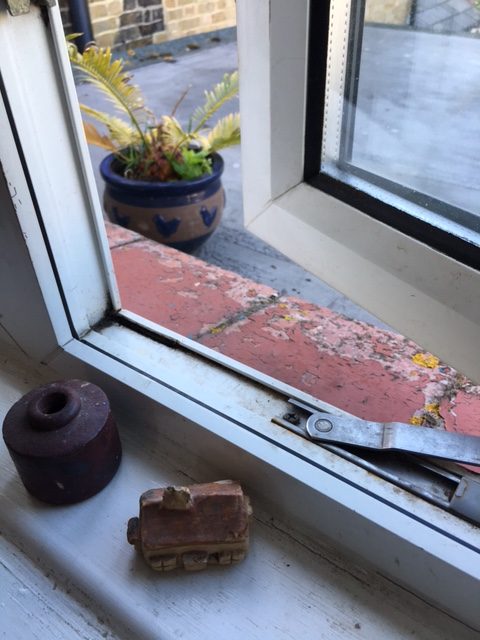
My Writing Room
In the search for a perfect house, my writing room exists virtually, filleted out of the spaces of childcare and domestics like stolen pages out of a notebook. One would think it would be a beach house, or some summerhouse half-hidden in the garden surrounded by banana and bamboo, but it is a yellow morning room, summoned up by some early Victorian novel in which a woman enters for breakfast laid out by invisible hands, and opens letters with a silver letter opener as precise as cutlery. There is primrose paint on the walls, contrasted with a white plaster embossed ceiling rose and French windows softened by damask silk drapes with touches of gold. The windows of course are doors: I don’t know why they call them windows and doubt the French invented them, when you think of all those hundreds of years when Rome settled in places as scenic as Tuscany and Cumbria, and the Scots built charming colonial houses in the Caribbean. But these doors are essential, in the absence of bougainvillea, hydrangeas will do (blue of course) and rhododendrons occupying a watery presence in the distance. The woman writer writes in the mornings, after the table has been cleared of envelopes and blue china. There are a hundred notebooks in another room, in assorted boxes and chests ranging from nondescript cardboard to my grandmother’s chest which has trapped a dozen miniature hummingbirds who make as much noise as woodpeckers. They’re quite annoying. Many of the notebooks are quite beautiful, given to me as gifts on numerous occasions from birthdays to graduations, to journeys which I travelled in hope and fear. Most are only half written in, as a new notebook is sacred, and the first marks should be equally sacred and stunningly revelatory in black ink with a fine nib, inscribed in the calligraphic style as taught by the nuns. I could never keep it up as the best poems come when I’m nowhere near a notebook and their bitter beauty will find scraps of paper from under the bed if need be and the whole business of hammering out whatever it’s trying to say is far too messy to soil the pristine pages of a book bound in red velvet. The process is bloody and macabre, filled with as many crossings out as heads rolled under the viscous sword of Voulet. After the beheadings something will evolve, a catharsis, some insect shedding its skin and becoming shimmeringly naked and beautiful.
I would have never imagined writing a first draft on a laptop or a phone which is what I’m doing now. The bloody birth of a new poem was necessarily aided by pen, ink, paper and fingers, so you can see the silvery trail of thoughts to which you return to again and again to remain in full possession of the first mad moment, the rush of blood to the head as a phrase or unformed idea warns of its emergence. But slowly the machine has taken over – it has seduced by allowing you editing facilities in one click, one clean sweep which leaves no traces of your clumsy wallowing in wet mud with wellingtons. It has possessed me totally; it is my writing room – whether we are together on the sofa in the living room, upstairs in the bedroom, or in the ‘spare’ room pertaining to be a study. My writing room has no walls, nor floors, and I am always in a different space after writing, coming to slowly like a blinking animal out of the effects of a dart. I’m glad I have no walls because it’s coming to me now this strange affliction of yellow – no walls means no wallpaper and no Charlotte Perkins Gilman. Were she and Mr Biswas to meet, well now, that would be a thing!
Maggie Harris is a Guyanese writer living in Kent. She has a BA and MA from the University of Kent, is twice winner of the Guyana Prize, was Regional Winner of the Commonwealth Prize, and recent winner of the Wales Poetry Award.
Website: www.maggieharris.co.uk